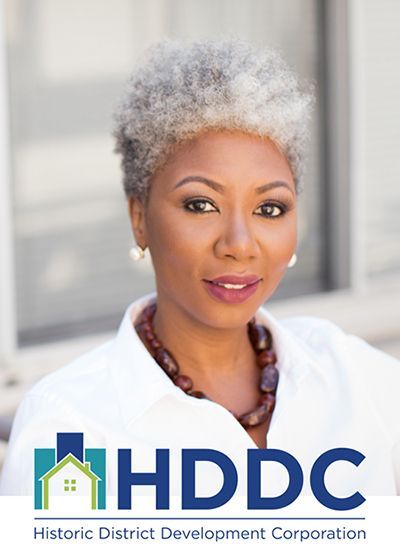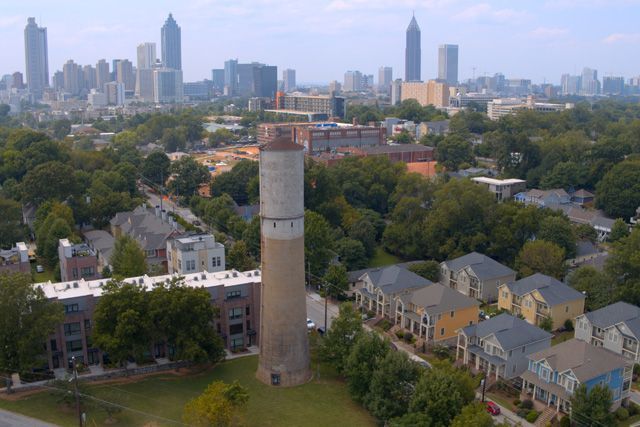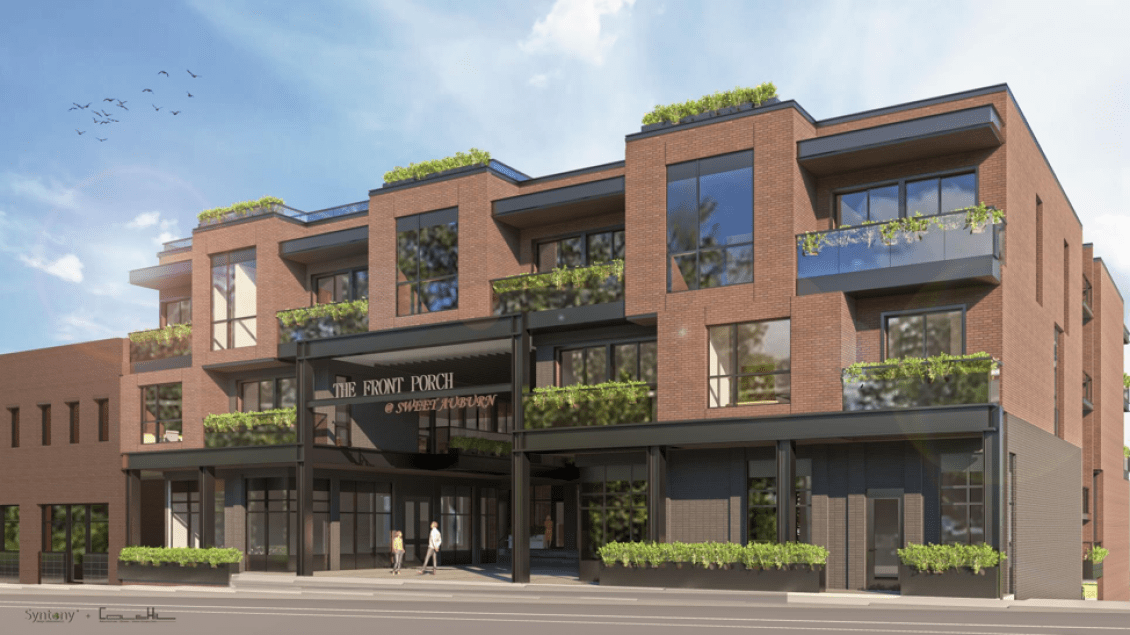We asked to Cheneé Joseph, executive director of the Historic District Development Corporation (HDDC), to provide some insight into the work her organization is doing to revitalize Atlanta’s historic Old Fourth Ward neighborhood. Here’s what she had to share:
Tell us about the work that you do at the Historic District Development Corporation (HDDC).

CJ: The Historic District Development Corporation (HDDC) was organized in 1980 as a neighborhood-based organization to rehabilitate and revitalize the residential and commercial property in the Sweet Auburn/Martin Luther King, Jr. Historic District. HDDC is a nonprofit, community development corporation, composed of neighborhood residents, community leaders, business people, and professional advisors. A major goal and primary mission of HDDC is to restore the area to the proud, economically diverse and viable community that once existed, while preventing displacement of existing residents and maintaining its historic character.
How are Section 4 funds provided by Enterprise used to support your organization?
CJ: The funds from the Enterprise grant will support capacity building activities – specifically staffing for our Front Porch project along Auburn Avenue in the Sweet Auburn District. The project will consist of 32 retail spaces to go along with 28 residential units, a number of which will be designated as affordable. We are currently operating below sustainable staffing levels, especially since COVID, and greatly need to increase staffing levels to support this catalytic project and what it means for our community. This grant award is instrumental in allowing HDDC to work closely with the neighborhood to deliver this mixed-use equitable development created to promote and increase the social impact in Sweet Auburn.
How did Covid-19 challenge you at HDDC? How did it challenge your service population? What has been the hardest part of the experience for HDDC?
CJ: Covid-19 has changed the how the organization interacts with community, which has been challenging since a crucial component of our work involves engaging our neighbors and stakeholders in the corridor. The impact of the pandemic on our residents is reflective of the uncertainty experienced by the rest of the world. HDDC was tried to work with all our tenants, commercial and residential, to remain in their homes and continue operating their businesses. Unfortunately, we have lost tenants who were unable to weather this storm. Their absence changes the fabric of our neighborhood that is so indicative of Sweet Auburn.
What have you learned in this unique and challenging time? Will you make any permanent changes going forward?
CJ: The pandemic has confirmed that it is imperative that we maintain flexible and resilient during normal times in order to sustain in periods of peril. CDCs like ours are instrumental in supporting and revitalizing communities, especially those that are impoverished or struggling. CDCs often deal with the development of affordable housing, which becomes an even more vital role as the economic impacts of COVID-19 continue to be felt throughout our community and so many others.

What’s HDDC’s outlook for the next 3/6/12 months?
CJ: HDDC will break ground on the Front Porch project during the summer of 2021, which will signal the first major redevelopment in the corridor in 15 years. This is a tremendous accomplishment for our community, and we are pleased to be leading the rebirth of Sweet Auburn. Additionally, we are bringing new members into the HDDC family who have years of experience and a commitment to bettering the community.
What do you think will change about affordable housing over the next 5 years? How are you excited about HDDC impacting that change?
CJ: A change that we have seen, and hope continues, is the involvement of local communities and residents in the process of developing affordable housing that fits their unique needs. The voices of residents have helped us advocate to lenders and make the case for building what the community needs and not just what is traditionally funded. You can see examples of this through community organizations advocating for 3-bedroom units, which have historically been very difficult to fund.
HDDC is proud to be at the forefront of advocating on behalf of actual community needs and pushing lenders to provide capital in creative, flexible ways. We are seeing that lenders are finally listening and understanding that business as usual will not provide the increases in affordable inventory that is so desperately needed. We continue to be more intentional about the way we develop quality affordable housing in partnership with residents in our neighborhood.
What else should people know about HDDC?
CJ: In addition to developing new real estate offerings, HDDC is committed to historic and cultural preservation of Black communities. We have piloted a number of approaches to infuse our developments with art that is representative of Black history. From transforming a historic funeral home into an event space and art gallery to public art installations through the Auburn Corridor, we enjoy using art as a vehicle to invite the wider community to envision bright and equitable futures.
Learn more about the exciting and transformative projects being developed by the Historic District Development Corporation by visiting their website.
